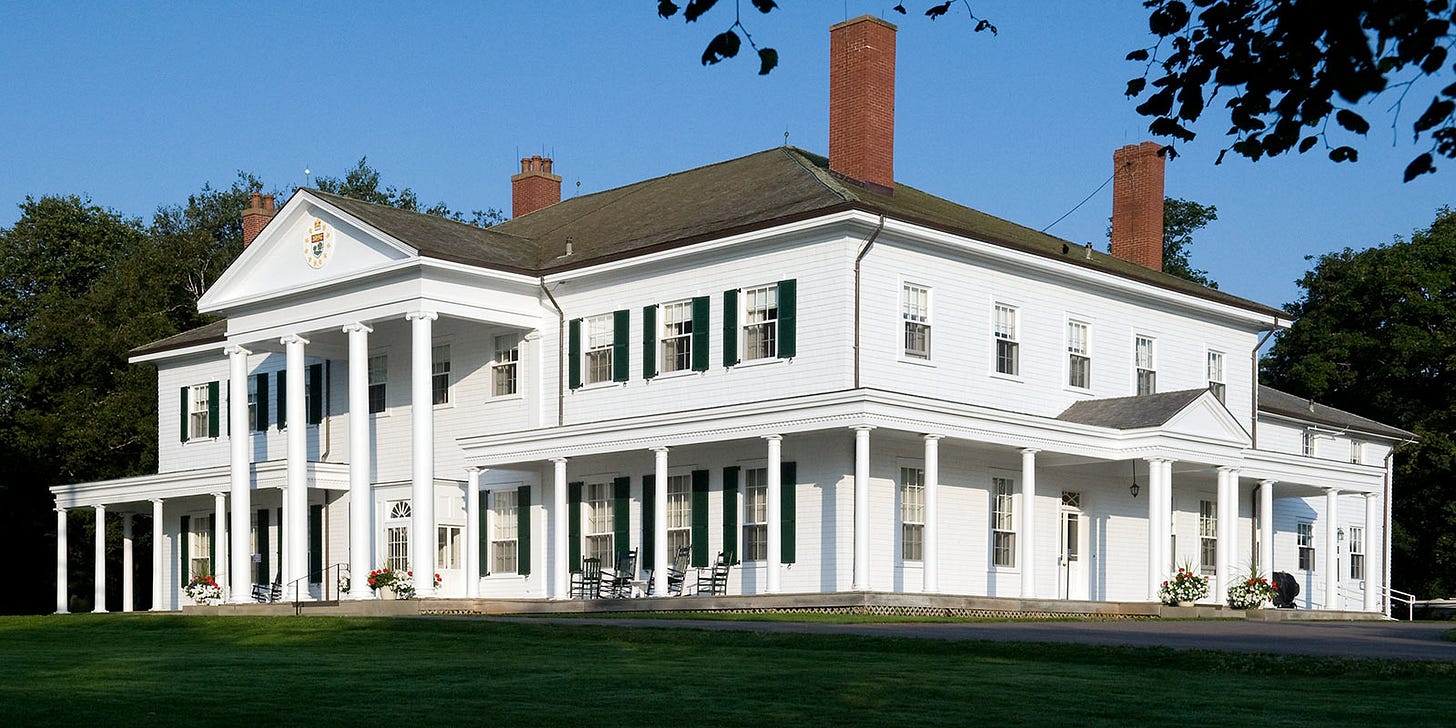In some of my social media bios, I have a quote from Susanna Clarke’s novel Piranesi: “Beloved Child of the House.”
Piranesi is a beautiful, strange book about a young man who lives in an infinite house full of endless halls, vestibules, and statues, where the tides flow through daily in majestic power. For him, the House is synonymous with the world, and he lives there in contentment, studying the tides, exploring, and recording his findings and thoughts in journals. He is called Piranesi by the only other living inhabitant of the House, but he does not think that is his actual name; he prefers to call himself “Beloved Child of the House.”
I won’t spoil the plot, but suffice it to say that when the serenity of his world is threatened, that interdependent relationship between him and the House sustains him: “The Beauty of the House is immeasurable; its Kindness infinite.”
I’ve been thinking about house and home lately. When I drop Jonathan off at day camp in the mornings I sometimes walk around the nearby neighbourhoods and wonder “What is it like to live in that house?” One of the houses I recently walked by and wondered about caught fire this week; it has no roof now and is hollow and black inside. Whoever lived there has been traumatically displaced, and I wonder where they are staying now and what their prospects are for finding another place they can call home.
Not far from Jonathan’s day camp is a tent encampment. I walked by there a few days ago and saw the tents set up among the trees, clothes drying on makeshift lines, and little clusters of people here and there. A lot of these folks are homeless and are fashioning a home of sorts in that encampment. It makes sense: they have friends there, and a measure of freedom, and if they need something there’s a service hub nearby where they can seek help and support.
Homelessness and lack of housing in general seems like an insurmountable problem right now. An article I read yesterday talked about the “rental wage”: how much a person would have to make per hour, working full-time, to afford a one-bedroom apartment that costs no more than 30% of their income. In many of the bigger cities in Ontario it’s around $30/hour (!!). And to buy a house? When homes that probably sold for $300,000 ten years ago are selling for a million now?
The link between having a home and having money is so ingrained in our society that we don’t question it. But everyone deserves a home.
I think seeing ourselves, like the narrator in Piranesi does, as a Beloved Child of the House — of the world — is a beautiful perspective. To know our own belovedness and to live out of that security and serenity seems like the most ideal state possible. But it’s easy to say that when you’re not lacking material security. It’s much harder to walk around feeling beloved when you’re being crushed by corporate greed or government indifference or racism or ableism … or just the shame of not being seen as a human being worthy of dignity.
I’ve always loved the passage in John 14: “In my Father’s house are many rooms.” (It was the Scripture passage our pastor friend Kent chose for Mom’s funeral sermon.) As a kid I always heard it in the King James translation, “many mansions,” and in my mind’s eye I imagined that heaven was a place where every family would live in a big, fancy house like Fanningbank, the PEI Lieutenant-Governor’s residence , which I considered the epitome of “mansion.” (It didn’t occur to me that a house with big houses in it didn’t exactly make sense).
I like the phrase “many rooms” better. And when I think about that verse now, I imagine the House in Piranesi. Not a bunch of rooms with locks on the doors, where we hunker down with our nuclear family or a few carefully selected, compatible roommates — but an infinite web of interconnected spaces. The tides flow in, but they don’t destroy the integrity of the House or its inhabitants. (As Piranesi the narrator says, “We were drenched, we were numbed, we were blinded, we were deafened; but always we were saved.”) No one needs a sufficient rental wage or a substantial down payment to live there. Everyone is welcome, beloved, and at home.
I no longer think of this Bible verse as necessarily referring to “heaven,” either — a place we go after we die. I think the Father’s House is everywhere. I think everyone is a Beloved Child of the House, if they only knew it.
So now when I walk through those unfamiliar neighbourhoods, I keep my eyes open for those Beloved Children. I see the younger woman pushing a walker up the street with an older woman riding on it, backwards; and I see the pickup truck driver waiting patiently for an opportunity to pass them on the narrow street. I see the guy sitting outside his tent offering a smoke to another guy. I see the slow-moving elderly man walking the tiniest, runtiest dog you can imagine. They seem so humble and so noble.
And in those moments, the House’s Beauty does seem immeasurable, its Kindness infinite.
My old blog, Jeannie Prinsen (formerly Little House on the Circle) still exists, for anyone interested in finding me there: here’s the link.






